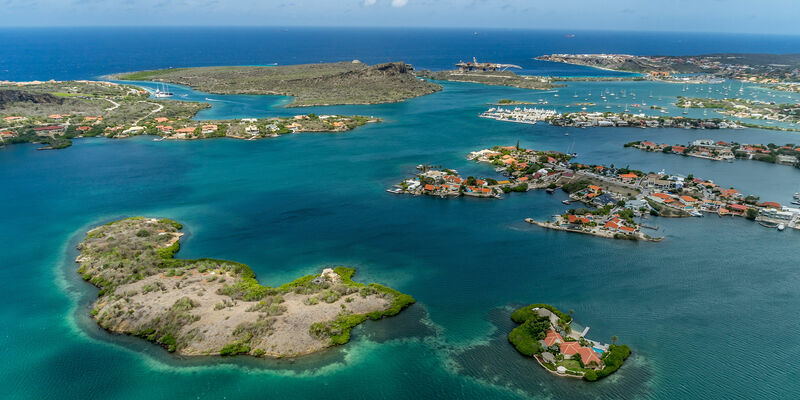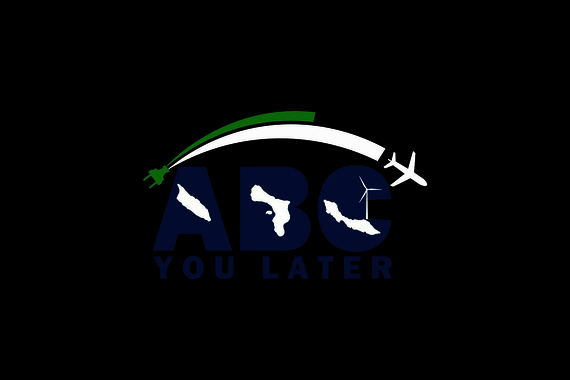
- Student
- 22/01/2021
Despite the fact that Curaçao, Aruba and Bonaire in the Caribbean are all located close to each other, travel between the islands is expensive and environmentally unfriendly. There are direct flights, but a return ticket can easily cost 150 euros. A boat trip is also possible, but there are no direct connections between the islands. Travelers then have to sail via the mainland. This has to change, according to the governments of the ABC islands and the Dutch Ministry of Infrastructure and Water Management. That’s why a challenge was issued to students. By doing that, the government hopes to use students’ innovative ideas for creating more sustainable air travel between the islands. A group of TU/e-students won this challenge. Their idea is now being taken on by a consortium of companies, governments and knowledge institutes.
The students from Eindhoven formed a group together with other students from Aruba, Belgium and England, among others. Under the name ABC You Later, they worked out a plan to be able to fly between the ABC islands using sustainable electricity within ten years. “It’s only a short distance and they’ll fly using small passenger planes. Which makes it possible to fly electrically,” says Brandon van Schaik, ABC You Later team member and founder of Falcon Electric Aviation.
Aircraft conversion
Past research by the Dutch Ministry of Infrastructure and Water Management found that the two types of aircraft that fly between the ABC Islands have the potential to be electrified. One aircraft, the Islander, can be replaced by an electric version. The other plane which is often used, the Twin Otter, can be converted to an electric model. This is how all four hundred flights each week between the islands would be made sustainable. Not only that, but flights will also become a lot cheaper. “Probably a ticket for an electric flight will eventually cost only about 30 euros instead of 150 euros,” says Van Schaik.
Plenty of electricity
However, this does require sustainable electricity. Which is exactly what the students were able to help with. They explored the opportunities for renewable electricity on the ABC islands. “The climate in the Caribbean is extremely suitable for this,” he continues. The students calculated that on each island one windmill and forty square meters of solar panels would be sufficient for the electricity they would need. According to them, the empty space around the runway is a great place to install these.
Apart from that, the students want to use a new concept whereby sun shades at airports also function as solar panels. The combination of these energy sources should be enough for all flights. “The electricity that is generated is used as much as possible to directly charge the aircraft,” says Thomas Driessen, team member of ABC You Later.
Storage
A small portion of the electricity is stored for peak periods, for e.g. when the sun is not shining enough or when several aircraft need to be charged at the same time. “We use a new type of battery for this that is five times cheaper than existing batteries. We also want to use flywheels (a rotating disc for storing energy, ed.),” Driessen explains. A small amount of energy is lost during storage, but the students believe that this storage is essential to ensure a continuous supply of electricity. Any surplus energy can also be used at the airport itself.
Consultancy
Van Schaik, Driessen and the rest of their team really enjoyed the opportunity to contribute to the challenge from the government. They decided to continue with providing consultancy services. “It’s a good way to come into contact with companies. Besides, it’s nice to be able to put your knowledge to good use to help companies while you’re still studying. Plus, it also brings in a bit of income,” says Van Schaik. According to him, it is also a good thing for companies to work with students. “We have pretty much the same knowledge as other consultants, but are a lot cheaper.”

Discussion